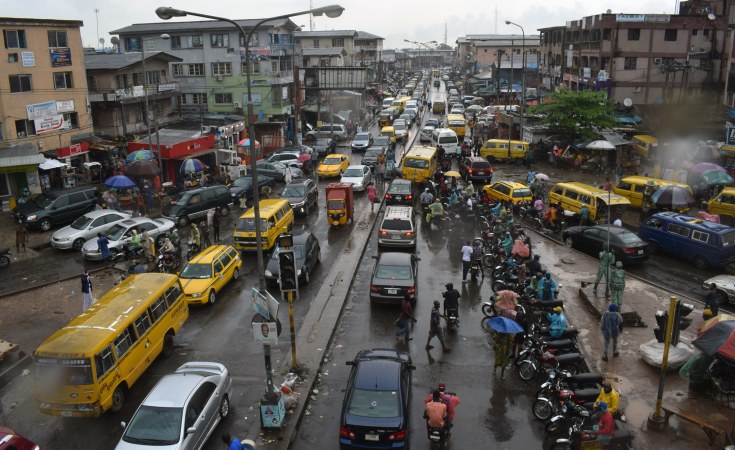Nigeria's biggest workers' association threatened to shut down the nation's economy if its demands are not met. The warning strike was prompted by the government canceling a fuel subsidy.
Workers in Nigeria staged a walkout on Tuesday, protesting the government's handling of the rising cost of living.
The Nigeria Labour Congress (NLC), the countries largest workers association, called for a two-day warning strike in response to the government's decision to repeal a fuel subsidy.
In a meeting with Nigerian president Bola Tinubu last week, representatives of the union decried the "massive suffering" that this policy had caused for Nigerians.
What do workers want?
The striking workers are demanding an increase to their wages, which they say are not enough amid the economic crisis.
Rising transport costs are especially critical, and have left many workers unable to pay for their commute, according to NLC President Joe Ajaero.
Should the government not meet the association's demands for improved welfare, including an increase in workers' wages, Ajaero said there would be a "total and indefinite shutdown of the nation" within weeks.
Government's bid to stop the strike
Government attempts to fend off the nation-wide protest failed on Monday evening, when union leaders rejected a meeting with the Nigerian labor ministry.
Nigeria's Minister of Labour and Employment, Simon Lalong urged the NLC to call of the strike.
"Such action would be detrimental to the gains already being recorded on our course to securing a greater future for Nigerian workers and citizens at large," Lalong said in a statement televised by TVC News Nigeria.
Unions already went on strike in August over the repealed fuel subsidy but suspended it after talks with the government.
Nigerian President Bola Tinubu, who took office in May, removed the fuel subsidy on his first day as president. The measure cost the Nigerian state $10 billion (€ 9.3 billion) in 2022.
Tinubu is seeking to to reduce public spending, strengthen the Nigerian currency and attract investors. But critics say has caused economic hardship for millions of Nigerians who are struggling with soaring inflation and food prices.
fg/dj (AP, DW sources)


